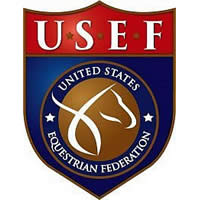Lexington, KY – The Florida Department of Agriculture has confirmed that a second horse associated with the Ocala Equine Herpes Virus 1 (EHV-1) has presented with neurological signs. To date, there have been a total of 7 horses linked to the Ocala outbreak (two neurological cases, and five having tested positive with no evidence of neurologic disease being seen). All positive tests have been reported as Equine Herpes Virus Type 1, the wild strain.
An additional horse (Wellington area and no identified direct or indirect connection to the Ocala show grounds) has been tested and found to be EHV-1 (wild strain) positive. There have been no neurologic symptoms associated with this animal.
All horses on the HITS Showgrounds, Ocala are under quarantine. Additionally, horses believed to have had increased opportunity of exposure or other risk have been traced to 11 different farms/training facilities. Quarantines have been put in place and the animals are being monitored for evidence of illness.
The Florida Department of Agriculture has posted a detailed report regarding this situation and is updating the report regularly. These updates include links to additional resources and are available at: www.freshfromflorida.com/ai/pdf/EHVWebsiteUpdate.pdf.
Please check this source regularly for the most current and reliable information regarding the status of the disease.
The equestrian community is being advised of the importance of horsemen implementing good biosecurity protocols that should be routine when attending competitions or visiting other venues where horses of different origin and disease status are congregating. If planning to travel to such venues, make certain you contact the venue prior to travel to understand what biosecurity measures have been imposed. Additionally, it is advised that you consult with your veterinarian in evaluating your horse’s current vaccination and immunity status and to review or develop an individual biosecurity plan. The California Department of Food & Agriculture has published a bio-security tool kit at this link: http://www.cdfa.ca.gov/ahfss/animal_health/equine_biosecurity.html. Dr. Stephen Schumacher, Chief Administrator for the USEF Drugs & Medication Program, describes this as a “good comprehensive resource compiled from a number of sources.”
